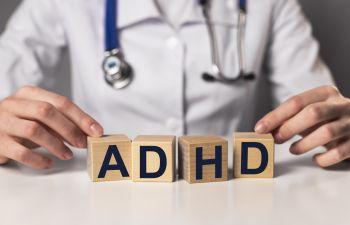Due to the long-standing association between boys and men and Attention Deficit Hyperactivity Disorder (ADHD), girls and women are frequently misdiagnosed and receive inadequate treatment. But new studies have illuminated the complex ways that female ADHD presents itself, emphasizing the significance of acknowledging gender variations and dispelling the stigma associated with this neurodevelopmental illness.
Recognizing ADHD in Women
Traditionally, hyperactivity, impulsivity, and trouble maintaining focus have been identified as signs of ADHD. Although many people with ADHD have these symptoms, girls and women may experience them differently than boys and men.
The way the symptoms manifest is one of the main distinctions. Boys with ADHD are more likely to have overt symptoms, such as physically restless activity and disruptive behavior, which makes the disorder easier to identify. However, less obvious symptoms like inattentiveness and internal restlessness are more common in girls with ADHD. These more subdued signs are often missed or confused with other symptoms, which can cause a delayed or incorrect diagnosis.
Furthermore, how ADHD symptoms are seen and understood might be influenced by gender stereotypes and cultural expectations. Because girls are frequently expected to be more obedient, well-organized, and socially skilled than boys, their symptoms of ADHD may go unnoticed, perpetuating the myth that ADHD only affects men.
Difficulties with Diagnosis
There can be serious repercussions if girls and women with ADHD are not properly diagnosed. Academically, socially, and emotionally, people with ADHD may struggle if they are not properly identified and treated. They might struggle in the job or at school, have trouble establishing and sustaining relationships, and struggle with low self-worth and feelings of inadequacy.
Undiagnosed ADHD can also have a role in the emergence of co-occurring illnesses such eating disorders, depression, and anxiety. These comorbid disorders may worsen the patient’s general health and make the diagnosis process even more difficult.
Female ADHD diagnosis necessitates a thorough approach that considers the particular ways in which this demographic experiences the disease. Healthcare professionals need to be aware of the more subdued signs of ADHD that are frequently observed in females, including daydreaming, disorganization, and emotional dysregulation. They should also be aware of any possible comorbidities that may accompany ADHD and take into account how gender norms and society expectations may affect how symptoms show.
Getting Rid of Stigma
Girls and women with ADHD frequently experience stigma and misunderstandings about their disease in addition to the difficulties involved in receiving a diagnosis. For girls with ADHD, the widespread perception that ADHD is largely a male condition can cause feelings of estrangement and loneliness. They could absorb cultural preconceptions and struggle to get acceptance and encouragement for what they’ve gone through.
It need a multidimensional strategy that includes advocacy, education, and destigmatization initiatives to address stigma. It’s critical to raise awareness regarding the incidence and manifestation of ADHD in women in order to combat stereotypes and debunk false beliefs. Education efforts aimed at the general public, educators, and healthcare professionals can support the development of a more accepting view of ADHD that recognizes the variety of ways it manifests itself in different genders.
Moreover, in order to guarantee that girls and women have the assistance and resources they require, advocacy campaigns that favor gender parity in ADHD research, diagnosis, and treatment are essential. We may endeavor to create a more welcoming and encouraging atmosphere for females with ADHD by elevating the voices of those who have lived experience and fighting for legislative changes that give priority to gender-sensitive methods to ADHD treatment.
Activating Females and Girls with ADHD
Encouraging girls and women with ADHD entails giving them the tools and resources they require to succeed in addition to tackling stigma and facilitating diagnosis and treatment. This entails putting accommodations and support services into place in educational and professional environments, encouraging self-advocacy and self-care techniques, and helping people with ADHD feel like they belong.
Girls and women with ADHD can benefit from psychoeducation and skill-building programs to help them create effective coping strategies and organizational techniques for managing their symptoms. In addition to addressing comorbid illnesses like anxiety and depression, cognitive-behavioral therapy (CBT) and mindfulness-based techniques can also be helpful for boosting general well-being.
Additionally, peer support groups and online forums can be extremely helpful in providing females with ADHD with a sense of community and validation. These platforms enable them to talk about their experiences, trade ideas, and get support from others who are aware of the particular difficulties they face.
In summary
A complicated and multidimensional condition, ADHD can impact people of any gender. To guarantee that girls and women with ADHD receive the assistance and resources they require to thrive, it is critical to acknowledge the gender disparities in ADHD presentation and to work towards eradicating stigma. We can enable girls with ADHD to realize their full potential and have happy, fulfilled lives by promoting gender-sensitive methods to diagnosis and treatment, dispelling myths, and increasing awareness.






